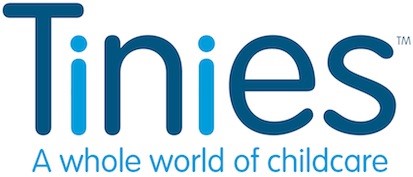A guide for Nursery Practitioners planning activities in older people's care homes
Thank you for your interest in uniting generations. If you're a nursery practitioner and want your employer to get involved in sharing time and activities with a care home or housing scheme for older people, here are some key points to consider and help you make the interaction a success for all generations.

- Be clear about why you want to undertake joint activities and the benefits for children and older people.
- Speak to your setting manager/owner about the United for all Ages campaign and the benefits for young, old, and, how your colleagues can get involved in activities that unite generations. All activities must be approved by your Manager and Ops Manager before taking place.
- Your setting manager will need to ensure that any supervised visit to another site is covered by the settings insurance policy.
- In the short term your setting may wish only to get involved with activities with a care home in your immediate community.
- In the long term, your setting may consider becoming one of the 500 co-location centres the United for All Ages campaign is aiming towards.
- Identify a local care home/housing scheme that you could all support. Your employer and colleagues may have one in mind where a friend or family member lives.
- Be clear about when you want to visit, how regularly (there needs to be some consistency) and for how long each visit (usually 45 minutes to an hour).
- Speak to your local council, they may be willing to provide you with support, equipment, or loans for your activities.
- Approach the manager of the care home/housing scheme for an initial conversation about what your group has to offer older people - and vice versa.
- There will need to be a space where you can meet; the care home/housing scheme will need to have carers available to accompany residents if needed. You and your colleagues will supervise the children but care workers will be around to help with safeguarding for all.
- You will need to ensure that the environment where you meet is equally safe and suitable for a child, so although children will be supervised at all times, ensure you are aware of where any potential risks may be, that there is appropriate and accessible toilet facilities available, and that you are able to maintain ratios.
- For personal development opportunities your setting team can take turns to lead the group, activities will need to be thought through and agreed in advance. Activities could include singing, crafts, making and playing with homemade play dough or themed seasonal events such as Christmas or Easter, winter or spring - the list is endless.
- Residents should want to take part by choice; all residents whatever their condition should be included in the invitation to join in and share the experience. Initially some residents may only want to observe and may take a little time before they want to participate.
- The interaction between ages needs to be both child led and resident led and allow spontaneous play wherever possible.
The mutual benefits for young and old will become obvious as the youngsters form relationships with the older generation - when it comes to difference, children see things differently and older people will enjoy a sense of purpose. Parents will also benefit from the company and seeing their children interact with other adults.
Keep a record of what you do, and try and record what the impact is for everyone involved. Think about how to develop the activities and keep the group going as children age and move on.
Please let Tinies and United for all ages know how you get on.
 |  |
